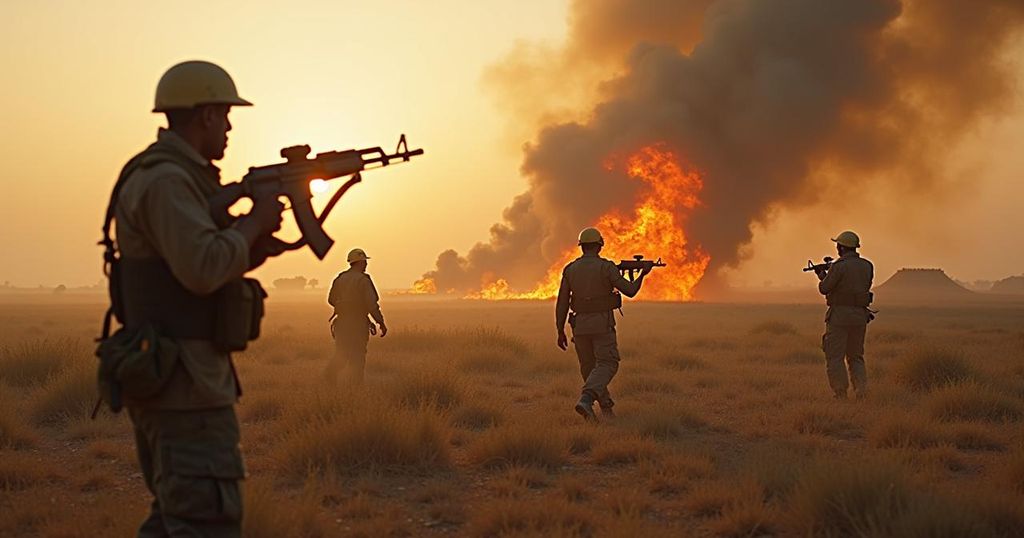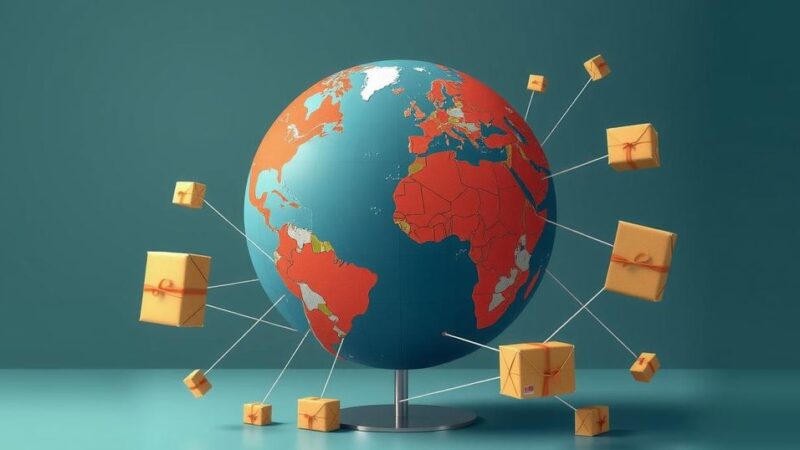Senior U.S. officials are alarmed by the Somalia-Ethiopia conflict, driven by Ethiopia’s occupation intentions and a deal with Somaliland that threatens Somalia’s territorial integrity. This situation diverts Somalia’s focus from combating Al-Shabaab, which is regaining momentum as military operations against it are reduced. The conflict complicates the region’s security landscape, especially with Egypt’s involvement amid strained Somalia-Ethiopia relations.
Senior U.S. officials express growing concern over the ongoing conflict between Somalia and Ethiopia, a situation that has occupied Somalia’s attention for the past nine months as Ethiopia has signaled intentions to occupy territory along the Red Sea. The recent deal made by Ethiopia with Somaliland—an autonomous region of Somalia—envisions the construction of a military base and port in exchange for recognizing Somaliland’s sovereignty. This development has provoked strong reactions from Somalia, which accuses Ethiopia of annexation and violation of its sovereignty. Soma lia, in response, has entered a military agreement with Egypt, further escalating tensions in the region. U.S. officials, along with their Western allies, fear that Somalia’s focus on this dispute with Ethiopia may allow Al-Shabaab to regain lost territory and momentum. Prior to this conflict, Somalia had declared an all-out war against Al-Shabaab militants, achieving significant victories in central and southern Somalia. Reports indicate that the Somali forces had disrupted Al-Shabaab’s operations by targeting their income sources, leading to a noticeable decline in their capabilities. With the development of the conflict, the progress against Al-Shabaab is now perceived to be at risk. Egypt’s involvement, particularly after delivering military supplies to Somalia, complicates the dynamics of the fight against Al-Shabaab further. Additionally, the role of the African Union’s peacekeeping mission is maneuvering towards change, with Somalia indicating that Egypt may take charge of the upcoming African Union Support and Stabilization Mission, set to replace the current mission in the coming months. Somalia’s growing discontent with Ethiopia, a historical partner in peacekeeping efforts, has emerged amidst suspicions regarding Egypt’s intentions, especially considering its previously limited engagement in Somalia. Reports indicate a decrease in military operations against Al-Shabaab partially attributed to the current conflict with Ethiopia, raising apprehensions as the group resumes its attacks on military installations, including targeting bases under Ethiopian command recently. President Hassan Sheikh Mohamud has acknowledged the adverse effects of Ethiopia’s territorial ambitions, warning that such aspirations could lead to the resurgence of Al-Shabaab, which had previously suffered significant losses.
The ongoing conflict between Somalia and Ethiopia centers around control of maritime access to the Red Sea. Ethiopia’s agreement with Somaliland—a breakaway region—intensifies Somalia’s grievances regarding territorial sovereignty. Historically, the region has seen fluctuating power dynamics, particularly with the involvement of Al-Shabaab, an Islamist militant group that has threatened stability in Somalia. Recent geopolitical shifts, influenced by military agreements with Egypt and changing roles within peacekeeping missions, create a complex environment that poses a dire threat to Somalia’s governmental stability and counter-terrorism efforts.
The conflict between Somalia and Ethiopia has significant implications for security in the Horn of Africa. As Somalia grapples with territorial disputes while engaging Al-Shabaab, the jihadist group is likely to capitalize on the diversion of resources and focus from the government. The involvement of external players like Egypt adds layers of complexity, which might change the strategic landscape further. Recognition of these dynamics is crucial for formulating effective responses to the threats posed by both regional conflicts and militant insurgency.
Original Source: www.garoweonline.com






